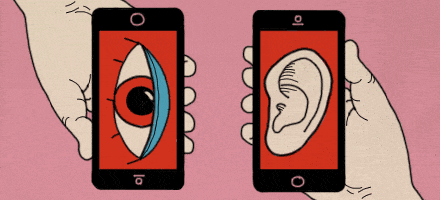As we get over the Mother’s Day weekend hangover and limp into yet another Monday, here’s a reminder that U.S. Unemployment is Rising Faster for Women and People of Color. Researcher Prof. Alexandra Kalev found that “in 327 companies that downsized and held layoffs, most based their decisions on either position or tenure and drained diversity from their management teams as a result.” 
Start off your week right with our AI Ethics Weekly newsletter. Share this sign up link with your friends so they too can get this exclusive content delivered to their inbox every Monday!
The pandemic has uncovered many ugly societal issues like gender inequality, racial inequities, as well as ethical issues in AI and emerging technologies, which have direct and damaging consequences for privacy and human rights.
Brace yourself for disturbing news from Asia via Martin Enserink @martinenserink as anti-gay backlash is feared in South Korea after coronavirus media reports, which will further reduce the willingness to get tested and also hurt adoption of contact tracing technologies.
Alaric Aloor @AlaricAloor shares that Biometric ID companies have started offering coronavirus technologies for businesses seeking to reopen but many are questioning the efficacy of the tech solutions being peddled. Worthwhile read via Marietje Schaake @MarietjeSchaake on this topic here => We Need An “Army” Of Contact Tracers To Safely Reopen The Country. We Might Get Apps Instead.
It’s not only the adults who are affected by the pandemic as Ilana Golbin @GolbinIlana reminds us with COVID-19: 4 questions parents should ask about tech for kids “When deciding whether technology is safe and educational for their children, parents and guardians should ask four questions about education, safety and privacy, responsible use, and inclusion and fairness.”
Algorithmic Justice League @AJLUnited highlights the importance of Investigating the Ethical Concerns of Facial Recognition Auditing “Although essential to revealing biased performance, well intentioned attempts at algorithmic auditing can have effects that may harm the very populations these measures are meant to protect.”
Great share by Hessie Jones @hessiejones on The 7 Myths of Data Anonymization which reveals that “Few people know that in fact identifying characteristics (so-called PIIs or Personally Identifiable Information) are often not necessary at all for identification. Years ago, for example, it was shown that 63% of US citizens can be uniquely identified by zip code, date of birth and gender alone.”
Dr Mona Sloane @mona_sloane has penned a thoughtful article on why Now Is the Time to Rethink AI, Automation and Employee Rights “There is a bigger context to this that we have to consider, and that often gets pushed to the sidelines by the AI hype. First, there is a systemic issue around wage stagnation and automation that extends into important questions around AI.”
Sign up to get the full-length version of this content delivered to your inbox every Monday!
Resources & opportunities:
Decision Points in AI Governance is a paper by Center for Long-Term Cybersecurity at UC Berkeley that provides an overview of efforts already under way to resolve the translational gap between principles and practice, ranging from tools and frameworks to standards and initiatives that can be applied at different stages of the AI development pipeline.
Virginia Dignum shared this DSEG Ethical Framework | Humanitarian Data Science and Ethics Group, a framework for applying data science methods for humanitarian outcomes. It aims to provide a set of ethical and practical guidelines for humanitarian data collectors, users, and stakeholders to consider when applying data science for humanitarian work.
Our intern, Rae @raeddand found this gem The Nooscope Manifested, a beautiful diagram of machine learning errors, biases, and limitations. “The Nooscope is a cartography of the limits of artificial intelligence, intended as a provocation to both computer science and the humanities. Any map is a partial perspective, a way to provoke debate. Similarly, this map is a manifesto — of AI dissidents. Its main purpose is to challenge the mystifications of artificial intelligence.”
If you liked what you read, Sign up to get the full-length version of this content delivered to your inbox every Monday!
